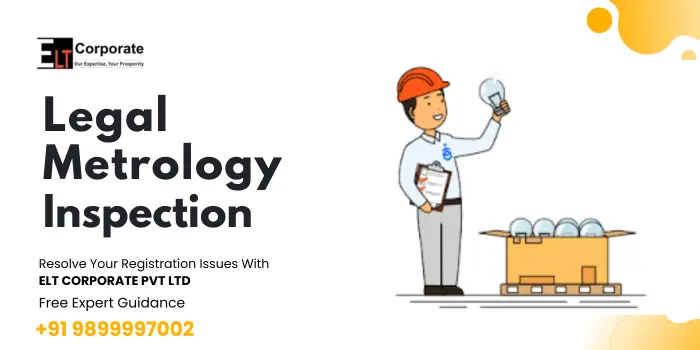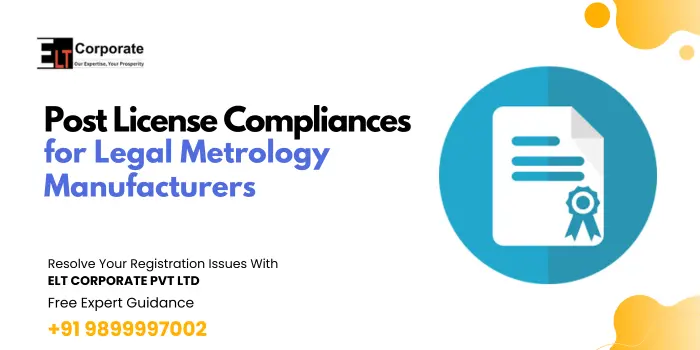Do you know what to do when a government-authorised agent comes for a surprise inspection? If not, then let’s start with understanding what happens at that time and what to do in this situation. Let’s begin with the fact that legal metrology inspection plays an important role in ensuring that businesses comply with packaging and labelling rules as per the Legal Metrology Act in India. Startups and direct-to-consumer (D2C) businesses that sell packaged goods risk fines, product recalls, or operational delays if they don’t submit to these inspections. All products are accurately and fairly labelled for the consumer, both during transit and on the shelf, thanks to thorough inspection. These LM inspections aid in confirming that businesses follow truthful and transparent business operations and that clients are not being misled. See this article for more information on the actual steps taken during a legal metrology inspection.
What Is Legal Metrology Inspection?
A Legal Metrology Inspection is a formal process done by government officers to examine if the packaging, labelling, and measurement of products meet the legal norms. This includes being certain that your product labels, in accordance with Indian Legal Metrology Rules, display readable and correct information such as the importer’s name, MRP, quantity, and manufacturing details.
Why is Legal Metrology Inspection Conducted?
Legal metrology inspections have many significant uses that are advantageous to both customers and companies. Please review the points listed below to understand the rationale for the Legal Metrology Inspection Conducted:
- Protect consumer rights by checking if pricing, weight, and information are fair and accurate.
- Maintain fair competition so that all businesses play by the same regulations.
- Prevent fraud by identifying under-measurement or missing declarations.
- Promote transparency in packaging and business communication.
Who Conducts a Legal Metrology Inspection In India?
Legal metrology inspection in India is conducted by trained officers who are appointed and authorised by the government. These inspections are conducted by Legal Metrology Officers (LMOs), who are appointed by the Central or State Government. They might visit business locations such as factories, warehouses, retail stores, or customs ports to ensure packaging compliance.
What Documents Are Checked During the Legal Metrology Rules?
Check the list of important documents that are checked during the legal metrology rule:
- Business Registration
- Premises
- Identity & Address Proof
- Partnership Deed
- Memorandum and Articles of Association
- Model Approval Certificate
- Declaration on Pre-packaged Commodities
- Affidavit
- Import/Export Code
- List of Machinery and Tools
- No Objection Certification (NOC)
- LMPC Certificate
- Registration Certificate
What Packaging Elements Are Reviewed Under Legal Metrology Rules?
Officers directly check certain product packaging details to make sure consumers get transparent and honest information.
- Maximum Retail Price
- Net Quantity
- Manufacturing and Expiry Date
- Manufacturer/Importer Name and Address
- Customer Care Details
How Are Product Labels Verified During Legal Metrology Inspection?
To know how product labels are verified during Legal Metrology Inspection, you can check the table mentioned below:
| S.No. | Labeling Aspects | Requirements |
|---|---|---|
| 1. | Font Size | It should be easy to read |
| 2. | Label Placement | Should not be hidden or obscured |
| 3. | Metric Units | Only metric system allowed (eg, g, ml, kg) |
| 4. | Single MRP | One price only, which means no dual pricing |
| 5. | Allowed Tolerance | Under the permitted legal limit |
What Happens If Any Legal Metrology Rule Is Violated?
If any firm fails to comply with Legal Metrology rules, then it will lead to penalties ranging from monetary fines to legal action.
- A warning or notice is issued
- The product may be seized
- Monetary penalties are applied
- For repeat violations, licenses may be suspended
Are Imported Products Also Checked During Legal Metrology Inspections?
Yes, imported goods should follow all the legal packaging and labelling requirements before entering the Indian market.
Imported products should have:
- A valid LMPC Certificate
- Proper labelling before customs clearance
If not compliant, products can be:
- Held at customs
- Subject to heavy fines
- Relabeled before market entry
How Can Businesses Prepare For a Legal Metrology Inspection?
Businesses prepare for a legal metrology inspection by checking these 4 important points:
- Keep a checklist of packaging requirements
- Store all compliance documents in one place
- Review each product label carefully
- Take help from experts like ELT Corporate for audits and legal support
How Does Legal Metrology Inspection Protect Rights?
These inspections are done to make sure that the consumer gets correct and honest information before making a purchase.
- Ensures fair pricing and correct weight
- Prevents misleading or hidden details
- Makes it easy for consumers to contact the business
How Can ELT Corporate Help In Facing Legal Metrology Inspections Smoothly?
ELT Corporate is the best regulatory consultancy. Here, we offer numerous services. We make sure that businesses remain fully compliant during inspection. ELT Corporate supports your business by:
- Helping design the right packaging and labels
- Assisting with LMPC and business registration
- Performing pre-inspection audits to catch errors
- Guidance on how to respond to legal notices
What Penalties Are Imposed For Non-Compliance Found During Inspection?
Penalties for non-compliance found during inspection can range from monetary fines to legal consequences and reputational damage.
Can A Legal Metrology Inspection Be Conducted Without Prior Notice?
Yes, Legal Metrology Inspection can be conducted without prior notice in advance. All companies need to be compliant and inspection-ready to avoid issues.



